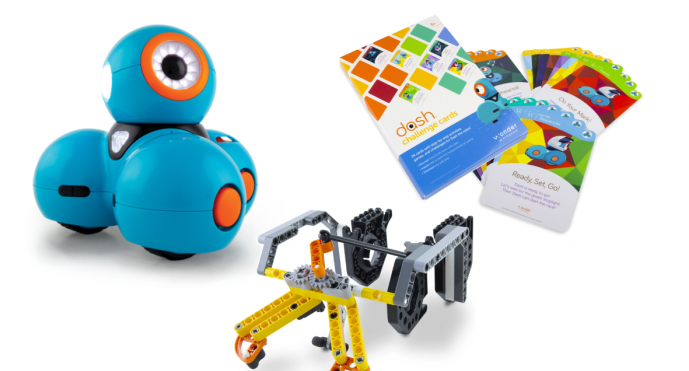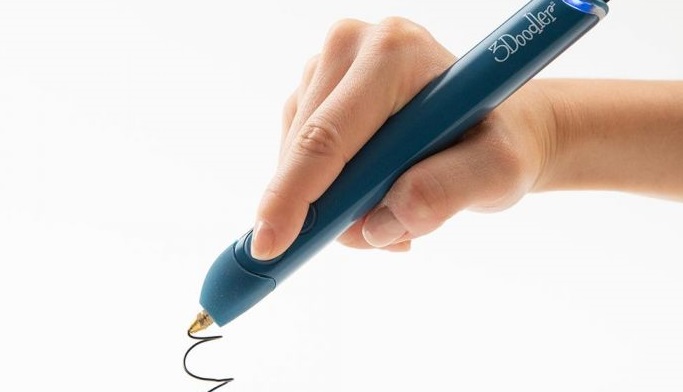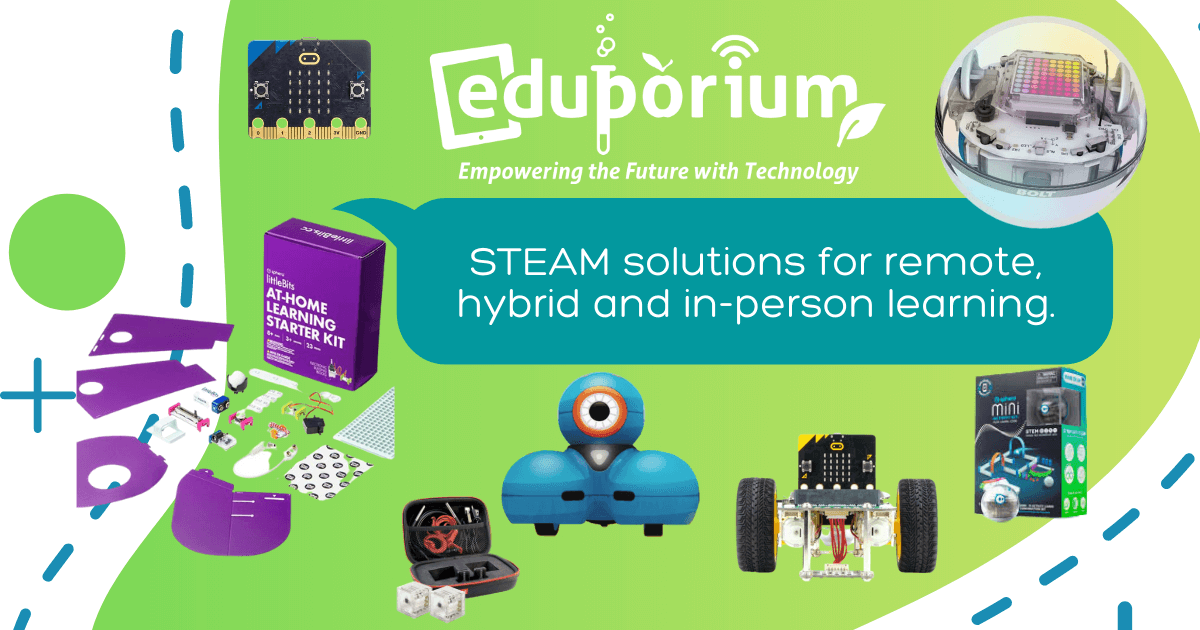Like so many teachers, students, parents, and administrators, we’re uncertain about what this school year will bring, especially as school doors slowly start to reopen. Whether learning is going to be taking place in person, at home, or as part of a hybrid model, we know that we couldn’t let STEM learning opportunities fall by the wayside, however. And, you don’t have to do that either. It may be tough for teachers to fit in STEM experiences for their students, especially with reduced options for allowing them to collaborate, but it’s not impossible. Taking into account a host of different factors, we’ve put together a group of personally selected STEAM tools that we believe have a place in each of the three instructional models, allowing STEM instruction to be a part of hybrid and remote learning.
For us, it came down to making it easier for educators to return to facilitating quality STEM and STEAM instruction. In making the tech tools that they can use in doing so front and center on our store, we hope we’ve simplified the research process. Ultimately, for us, it's important to ensure that students still get the vital STEAM learning experiences complete with hands-on, exploration-based problem solving and teachers aren’t met with additional stress, anxiety, and finding a way to make more time for lesson planning.
Facilitating STEAM experiences in remote or hybrid learning.
In the Hybrid Learning category on our store, the EdTech tools you’ll find fit in a very specific group. Not only is it possible for students to use them in a remote, hybrid, or in-person setting, they fit other criteria as well. First of all, they’re affordable since we know this is always a top concern—much less in the unprecedented situation we’ve navigated over the last few months. They’re also easily portable for potentially transitioning between home and school use, they’re able to be used by students on a 1:1 basis to avoid sharing, and they’re largely comprised of reliable brands that educators often already know and trust.

So, which are some of the top STEAM tools we’re recommending educators try out as they discover what will work for them in their particular situation? A lot of them are the ones we often advocate for, including the Root Robot, databot robot, and Sphero BOLT—all of which come in single packs, which makes them more affordable. Like the Root and databot, the Sphero robots are great for hybrid learning. Then, there’s also the Dash Robot, which is available in a single pack as well, but also as part of the Dash Home Learning Bundle. This bundle includes the robot and various accessories, including Class Connect licenses, to help make coding with the Dash more viable at home. And, as part of Wonder Workshop’s virtual Dash offering, students can now program the Dash Robot remotely on a computer and (newly announced!) iOS devices!
Reimagining classroom STEAM tools in new environments.
Next on the list, we have some coding tools, including the Ozobot Evo Educator Entry Kit, Tello EDU drone, and littleBits Base Inventor Kit. The Ozobot is a great 1:1 option that provides familiarity and affordability for educators as well. The Base Inventor Kit comes with sample activities, which are valuable for saving teachers time, and it's compatible with the free littleBits app and accessories like the littleBits micro:bit Adapter, which allow students to effectively use the kit independently. And, as for the Tello EDU, students can access the various apps for programming the drone at home or in the classroom, helping them to combine two of the coolest areas of STEAM easily and enjoyably.

It’s not just robotics and coding tools that are affordable, 1:1 conducive, and portable, however. Take 3D printing, for example, and the 3Doodler Create+ kit. This pen is very portable and, as long as students have a way to charge it, they can easily create three-dimensional sculptures and projects at home. Then, there’s the BrickLAB BrickPACK and the KEVA Plank Set, which offer low-tech engineering experiences for younger students. They can design, build, and play while constructing a number of structures independently and learn more about the design process at the same time. For more engineering opportunities, the variety of Engino kits can be used in the classroom or at home if students want to learn specific science concepts, like levers, inertia, pulleys, or more!
Some of the more affordable options.
To round out some of our top suggestions, the Light Racer Kit is a unique option for invention-based STEAM, the Sphero Mini Activity Kit is a highly portable and easy-to-start option for coding and other science-based lessons, the GiggleBot is a more advanced (but still affordable) coding option, and our custom micro:bit kit is an example of how we can create a custom solution for you.
If you have any questions about any of the featured STEAM options for remote and hybrid learning, please do not hesitate to contact our team. Be sure to check out the new Hybrid and Remote section on our store as well for more options when it comes to keeping STEAM learning alive. We wish you luck in whatever method you’re using in your return to school and encourage you to follow us on Twitter and Instagram for more insight, inspiration, and ideas!



